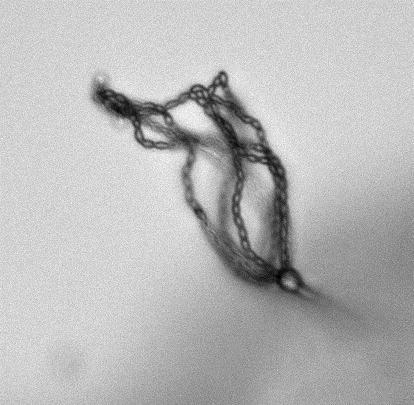A researcher from Aberdeen University has been awarded a prestigious grant that will allow her to fight a killer fungus which is ravaging populations in sub-Saharan Africa.
Dr Elizabeth Ballou, originally from America, will use new funding to combat an airborne fungus named Cryptococcus.
The fungus, which can attack the lungs and brain, grows in bird droppings and kills around 600,000 people a year.
She is just one of just 12 scientists in the UK to receive a share of a £300,000 grant from the Biotechnology and Biological Sciences Research Council (BBSRC) as part of its 20th anniversary.
Dr Ballou, who will conduct the research with colleagues at the Aberdeen Fungal Group, said: “We believe that Cryptococcus is transmitted through the air, when people breathe in spores. It goes into our lungs, where most people are able to fight off infection without any problem.
“But if your immune system is compromised in some way, then it can grow in your lungs and eventually go to your brain.
“Cryptococcus is found all over the world, including the UK and the US, but most deaths occur in sub-Saharan Africa because of the HIV and AIDS epidemic there.
“It grows well in pigeon guano, so anywhere there are birds, you can find Cryptococcus.
“There are one million infections every year, and more than 600,000 deaths, with 500,000 of those deaths occurring in sub-Saharan Africa, so there is a huge opportunity to make an impact reducing that burden of morbidity and mortality.”
She added: “I think the importance of fungi are underestimated. Most people know about bacteria and viruses, but fungi get much less attention, except as toadstools or mould.
“But fungi have always co-existed with us, lots of great things have come from fungi like beer, whiskey, wine, bread, cheese, even coffee and chocolate are all bi-products of various types of fungi.
“As organisms, fungi actually share a lot in common with human cells, so scientists use fungi to study cancer, to understand how cells divide and to understand how cells can grow in different environment,s so they are extremely useful tools.
“The work done by the Aberdeen Fungal Group and other researchers around the world is making important strides towards developing new drugs to treat these infections, but we can’t do it without public investment and public interest in the outcome, which is why I’m so grateful to the BBSRC.”










